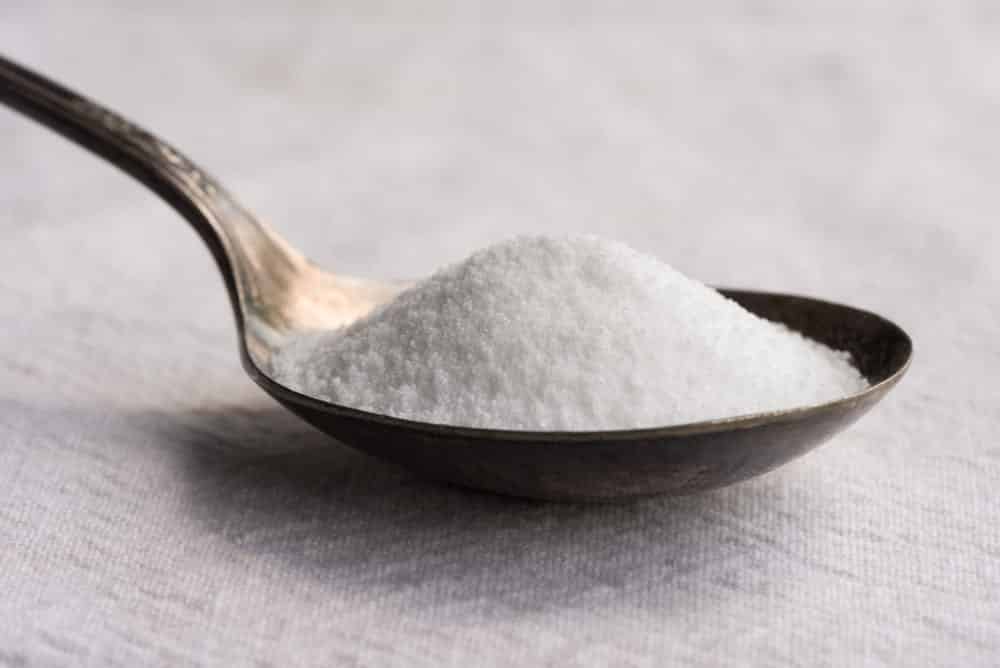
Are you one of those choosy foodies who like their food a little sour? Do you always keep a bottle of salt sour in your purse? We can understand your love for sourness. The sour and tart flavor of this powder enhances any dish. It is easy to use since it is not possible to have lemon everywhere you go.
Sour salt derives from acidic citrus foods like lemon juice and lime. Its major use is in making sausages and canning. In canning, sour salt prevents the fruits from darkening. However, you might want to look into sour salt substitute, in case you ran short of it during cooking.
The best practice while using sour salt is to add some sugar with it. The flavor may overpower some dishes. So, it is best to blend the taste by using both sour salt and sugar. You can use it in ice creams, sorbets, lemon cheesecake, soups like cabbage soup, and even in cheese like mascarpone and ricotta.
Sour Salt Substitute
1) Lemon juice
Sour salt is derived from citrus fruits like lemon juice and lime. The juice dries out to form powdered sour salt. So, in case sour salt is unavailable, you can add lemon juice.
The sour and tart flavor of fresh lemon juice would be perfect for making borscht. You can squeeze some in beverages, sauces, and other dishes to get the best blend.
If you are using sour salt for preventing fruit from discoloring, lemon juice can do the trick. It works well with fruits like bananas, apples, or pears that turn dark easily. You can use fresh lemon juice or bottled one depending upon availability. Put a generous amount of lemon juice on the freshly cut fruits. During the process of canning, lemon juice works flawlessly.
From a nutritional perspective, lemon juice contains Vitamin C. It acts as an antioxidant, improves the immune system, and prevents cancer. Lemon juice is a great addition to a weight-loss journey as well as your everyday skincare routine.
2) Tartaric acid
Tartaric acid is found naturally in many fruits like bananas and grapes. It is water-soluble and has a strong sour taste. So, it is recommended to use it in small quantities in recipes. Tartaric acid works best in beverages. Thus, it will prove to be a valuable substitute for sour salt.
Furthermore, tartaric acid is commonly used in candies, jams, and jellies. When tartaric acid combines with baking soda, it acts as a leavening agent.
From a nutritional point of view, it has antioxidant and anti-inflammatory properties. Hence, it boosts your immunity. Tartaric acid is yet another ingredient that aids in digestion, but overconsumption can cause gastric issues.
3) White distilled vinegar
Vinegar is a versatile element in cooking. White vinegar is a great substitute for sour salt. Add the required amount according to your recipe and see if it works well. Each type of vinegar gives a unique flavor. White vinegar is sour but milder than some other types. Hence, whenever you are using an element as a substitute, you have to play with the amount added.
Due to the acetic acid of white vinegar, it has numerous health benefits. Some important ones are weight reduction, controlling cholesterol, and aiding in maintaining normal blood glucose levels.
4) Ascorbic acid
Are you canning fruits for the upcoming season? If yes, then sour salt might be on your list for preventing fruit discoloration. However, ascorbic acid is the number one choice to prevent the darkening of fruits.
Ascorbic acid has a citrus side when it comes to taste. In cooking, it is used in fruit juices, candies, dried and frozen fruits. Hence, if you have some ascorbic acid at home, give it a try. It will prove worthy as a sour salt substitute.
Thus, we can say that we have decent sour salt substitutes. The natural taste of sour salt can easily be replaced by the alternatives mentioned above. Furthermore, these substitutes have high nutritional value. Sour salt works best when you are out of home or need a quick way to sprinkle some sourness in your beverage or any other dish. Be careful while you use the substitutes, as each of them has a certain level of sourness.